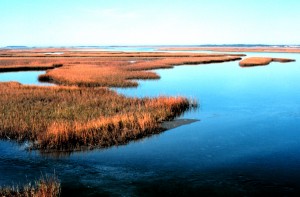
As Rio+20 Takes the International Stage, North Carolina Legislators Debate the Existence of Climate Change
 The Rio+20 United Nations Conference on Sustainable Development is underway in Brazil; will any concrete plans of action come from it? As international leaders discuss renewable energy, carbon emissions reduction and plans for the future, the debate about climate change has been heating up in North Carolina.
The Rio+20 United Nations Conference on Sustainable Development is underway in Brazil; will any concrete plans of action come from it? As international leaders discuss renewable energy, carbon emissions reduction and plans for the future, the debate about climate change has been heating up in North Carolina.
Last week, the state Senate of North Carolina passed a bill with an overwhelming majority that prevents state and local agencies from considering the future projections of increased sea-level rise in planning new developments and coastal infrastructure. Instead of looking forward at predictions that take rising temperatures and vulnerability of salt marshes into account, planners will only be allowed to consider historical rates of sea-level rise. This may be a costly mistake for North Carolina, as the prevalence of extreme weather events is putting buildings and infrastructure on the coast at risk of damage.
This bill ignores mainstream predictions of sea-level rise, as temperatures continue to climb and polar ice melt accelerates, it could move even faster than predicted. German climatologist Stefan Rahmstorf, whose research on sea-level rise has been central to preparing European cities for sea-level rise, recommended that the state prepare for a 39-inch rise by 2100, a reasonable rate based on sound science. The North Carolina Senate didn’t see it that way.
This decision to look into the past for answers to future effects climate change in North Carolina is short-sighted and risky. A study of marsh sediment by University of Pennsylvania scientist Andrew Kemp found that over the past two millennia, the sea-level rose only millimeters over 400 years and has been stable or slightly falling, up until the year 1900. After 1900, the sea has been rising at a rate of 2.1mm/year, the steepest increase in the past two millennia. If North Carolina bases their future plans on the past 2000 years, they will be mistaken as to the amount the sea-level will increase.
The sea has been rising at an alarming rate since 1900, which will continue over the next century. Coastal cities must be prepared for all scenarios, including the worst-case situations. In North Carolina, the philosophical debate about the science behind climate change may overshadow the necessity to adapt to a changing climate.
The North Carolina House of Representatives voted against the measure earlier this week, which could kill the bill. The N.C. chamber has initiated a long-term study into the effects of sea-level rise, which may take many years to complete. This debate has proved that legislators don’t want to listen to sound science and ultimately, ideology trumps practicality. Why would another scientific study change anything?





